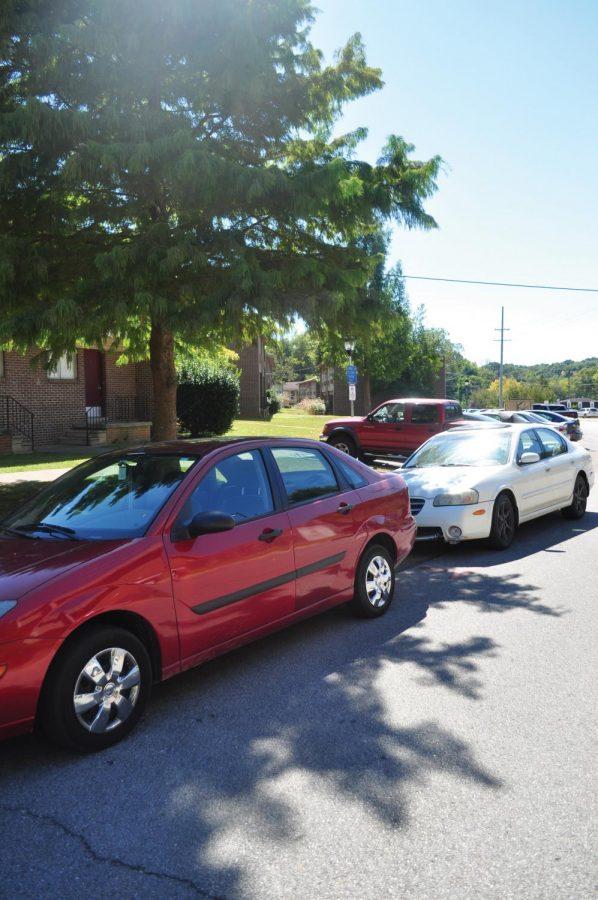UNA generates more than $30,000 in parking ticket revenue
October 10, 2015
Senior Austin Park makes his way back to his vehicle at the end of a long day. As he approaches it, he sees a small slip of paper waving in the wind from underneath his windshield wiper. Park received a parking citation.
With the limited amount of parking spaces on campus, many students find themselves responsible for receiving a parking ticket at some point during their time at the university.
Those responsible for paying off the ticket often wonder where their money is going. The police department disperses the money and uses it for different causes.
“(The money collected from parking tickets) is divided among several things,” said Chief of Police Kevin Gillilan.“We have to cover a baseline of what it costs us to enforce parking. Some of that funding goes toward the software that we use to manage the fines and payments.”
The UNA police department collected thousands of dollars from parking tickets in the previous year, Carter said.
The police department collected more than $32,000 from parking tickets in the fiscal year ending Sept. 30, Carter said.
Though the police department is responsible for dispensing parking tickets, it does not determine ticket costs.
Carter said the Shared Governance process determines ticket costs. Shared Governance includes the Office of Student Affairs, the police department, and the Student Government Association and select members of the faculty and staff.
“The most common parking ticket would probably be parking on campus without a hanging parking decal or parking in the wrong area of campus,” Gillilan said.
While students are more known for violating parking policy, they are not the only members of campus who violate parking policy, he said.
“We find that a lot of times students will park in faculty parking,” Gillilan said. “That puts us in a situation where faculty will park in student parking because their spots are full. It’s a violation on both ends.”
Communications professor Jason Pangilinan said he sees many issues with parking on campus.
“I have witnessed my share of students parking in faculty spots, which has forced me to take a student spot,” he said. “I don’t like doing it, but I will when I have a class to teach,” Pangilinan said.
However, Pangilinan said he thinks the university should stop reserving spaces behind the Guillot University Center for special events.
“It hurts the students and faculty, which gives rise to the ‘stealing’ of spaces,” he said.
Though the parking conflict between students and faculty is an everyday struggle, it will continue because of the limited parking space.
“A lot of the students are trying to get to class, faculty is trying to get to work and the two often collide,” Gillilan said. “The bottom line is that there’s just not enough available parking on campus.”
Students and faculty often have opposing views on who should get away with breaking the rules.
“I hear some people say that they don’t feel like faculty and staff should have to be subject to parking policy,” Gillilan said. “I’ve heard some say that students should take priority on parking policy.”
All parking violators are responsible for their wrongdoings, Gillilan said.
“(The Police Department) is going to enforce (policy) in an equitable manner,” he said. “It shouldn’t matter what status you have on campus. It’s supposed to be fair, impartial, and equally enforced across the board…”
Park said he believes the university shuttle bus system has many benefits along with avoiding parking tickets.
“The bus got me to my class on time and early,” Park said. “I didn’t have to use my own gas and I didn’t have to worry about parking.”
Gillilan said he also views the shuttle bus system as a means of dodging citations.
“I know that it’s a lot faster to just ride the shuttle than to just ride around looking for a spot,” Gillilan said. “In my opinion, it’s certainly a better option than risking receiving a parking citation.”


